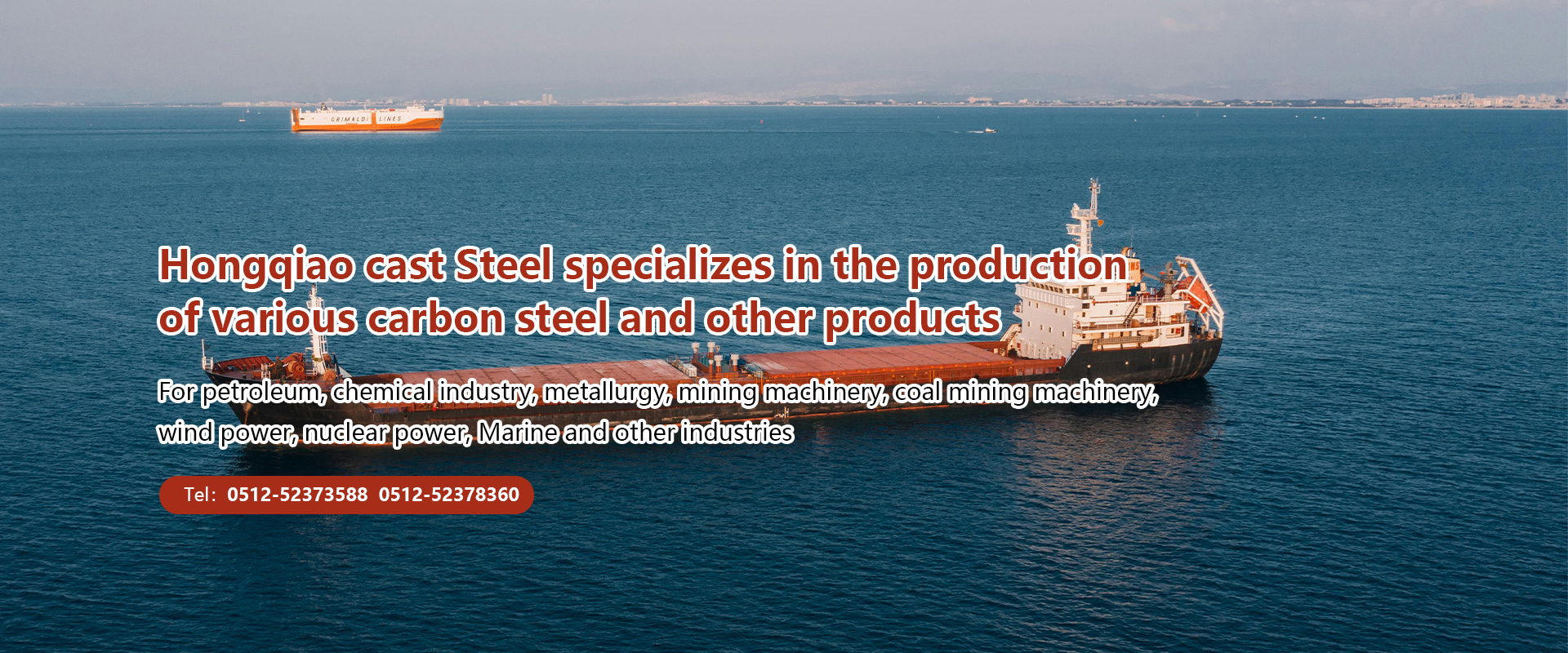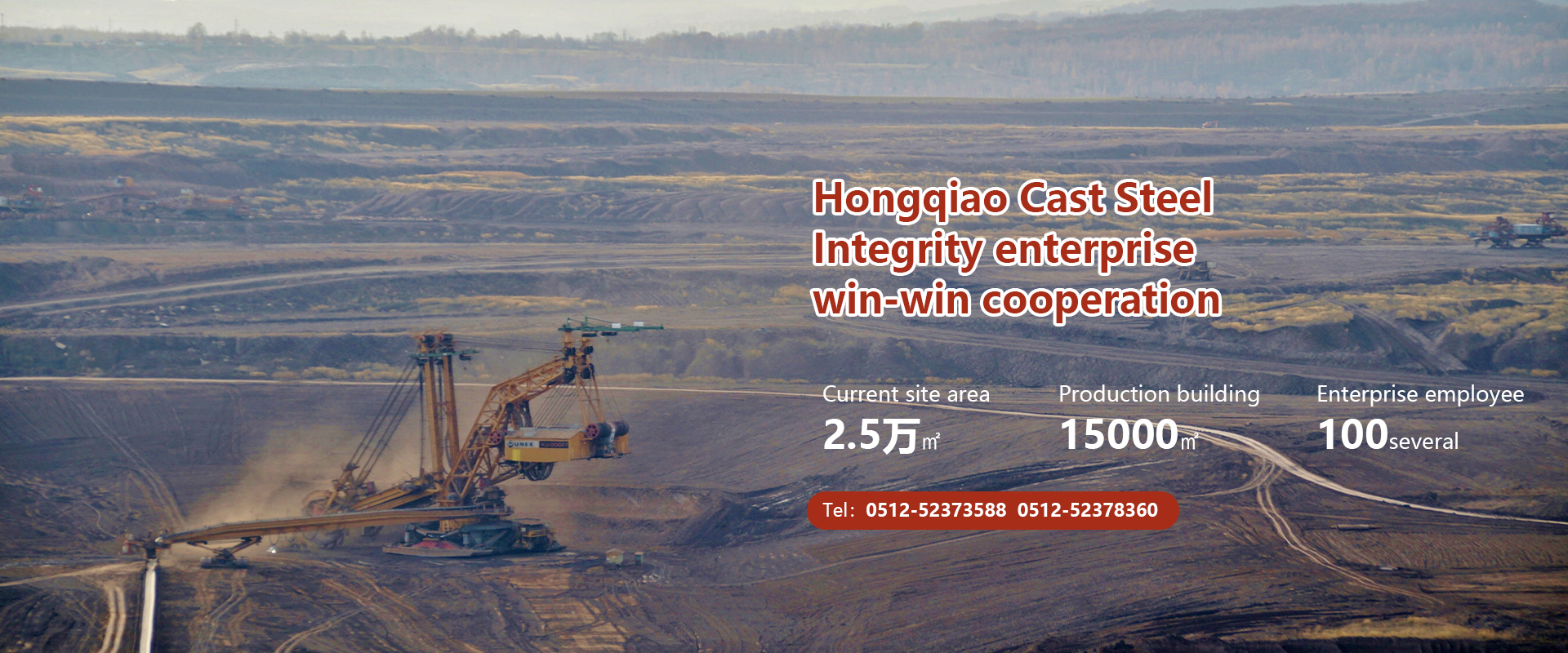Customized steel castings: The casting process is a complex system engineering that involves many influencing factors. The essence of casting process design is to analyze the main influencing factors, find control methods, and formulate process measures based on the requirements of casting quality.
The development and application of computer-aided casting process design has become an effective means of optimizing casting process design and controlling the quality of casting formation process.
At present, research institutions and manufacturers in the casting industry at home and abroad are competing to develop and launch various casting solidification simulation software, making solidification technology quantitative, intelligent, and programmable. The content includes process scheme selection, pouring system size calculation, riser type, position and size determination, making defect prediction and process optimization more scientific and reasonable.
(1) Due to the use of the same molding material as the mold, the heat of the ordinary riser is dissipated through the side and top surfaces when the metal liquid fills the riser, and the riser solidifies from the surface to the center. Only 6% to 10% of the metal liquid in the riser is used to supplement the shrinkage of the casting, except for the riser itself. In order to provide sufficient metal liquid to compensate for the shrinkage of the casting during the entire solidification period and obtain a dense casting, the riser needs to be designed to be larger and higher. Although the riser can be recycled, it still consumes a lot of manpower, material resources, and energy, leading to an increase in casting costs.
(2) The insulation riser sleeve is composed of insulation material, refractory aggregate, and binder. Commonly used types include fiber composite, flue ash (floating bead) perlite composite, ceramic particle composite, etc. The riser sleeve made of these materials is lightweight, has high fire resistance, low heat loss, good insulation performance, and can increase the process yield by 10% to 20%, with good technical and economic benefits.
Fiber composite insulation riser sleeve is made of organic fibers, inorganic fibers, refractory aggregates as raw materials, resin as binder, and special vacuum forming process. The riser forms a porous network structure and is uniformly stacked in layers. This creates a large number of dispersed pores inside the insulation material. In addition, the organic fibers in the riser sleeve material are burned and carbonized by high-temperature metal liquid, further increasing the number of micropores in the internal structure, with a visible porosity of up to 65% to 70%, which prevents heat conduction and radiation at high temperatures. Therefore, it has good insulation performance and is more conducive to the shrinkage of castings.
The floating beads in the composite insulation riser sleeve of flue ash (floating beads) are hollow spherical fine particles, and the insulation performance of the riser made from them is better than that of the fiber composite insulation riser sleeve.
(3) The heating insulation riser sleeve and the heating agent riser are collectively referred to as heating risers. Using heating materials to make riser sleeves, during pouring, the metal liquid in the riser undergoes a thermochemical reaction with the heating material, releasing heat and duration that can maintain the metal liquid in the riser in a liquid state for a long time during the solidification process of the casting.
The heating agent riser is a riser that sprays heating agent onto the top surface of a regular riser, and it also serves to heat the molten metal. The shrinkage efficiency of the heating riser is much higher than that of the ordinary riser, and the size design of the riser can also be smaller than that of the ordinary riser, resulting in a higher production rate of castings.
Heating insulation riser sleeve is a riser sleeve made of insulation material and heating material, which combines the advantages of insulation riser and heating riser. Its shrinkage efficiency is three times that of ordinary risers, and it is currently one of the most advanced process technologies in the casting industry.
In addition, adding a covering agent to the riser can achieve the best effect. The main types of covering agents include plant ash, carbonized rice husks, coke powder, flue ash, aluminum thermite, graphite slag, and composite heating and insulation covering agents. A large number of experiments and production practices have shown that without a covering agent, the shrinkage efficiency of the open riser is very poor. Even if insulation risers or heating insulation risers are used, the expected effect cannot be achieved. In the process of delaying the solidification of the riser, the role of the covering agent accounts for 30% to 50%, and the role of the insulation sleeve accounts for 50% to 70%. The combination of covering agent and insulation riser or heating insulation riser can better demonstrate its insulation effect, doubling the solidification time of the riser. The strengthening effect of the covering agent on the riser is not inferior to that of the insulation riser itself, and it must be given sufficient attention. Different types of covering agents have different functions and effects, and enterprises need to choose them reasonably according to the casting material and technical process requirements.
Changshu Hongqiao Cast Steel Co., Ltd. mainly produces various specifications of carbon steel, high, medium and low alloy steel, stainless steel, heat-resistant steel, high manganese steel, and high chromium cast iron. We provide high-quality customized steel castings for industries such as petroleum, chemical, metallurgical, mining machinery, coal mining machinery, wind power, nuclear power, and marine. We also offer customized steel castings for marine use, ABS marine engineering services, and cast steel for export overseas.





